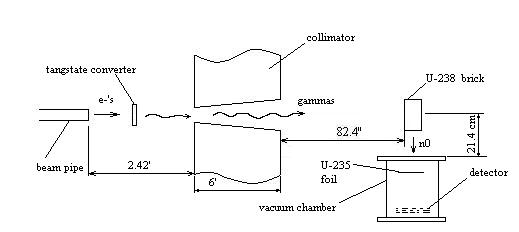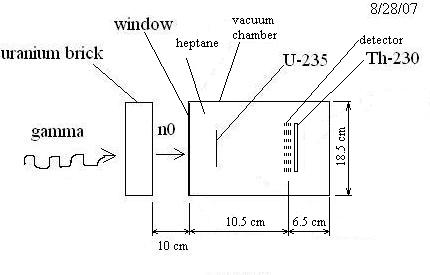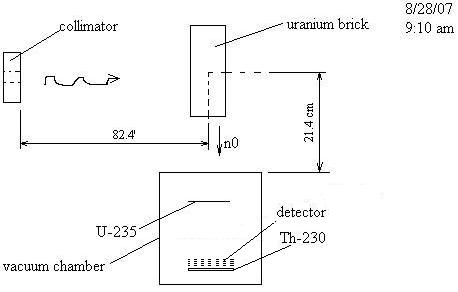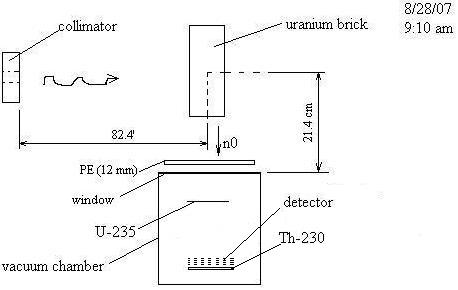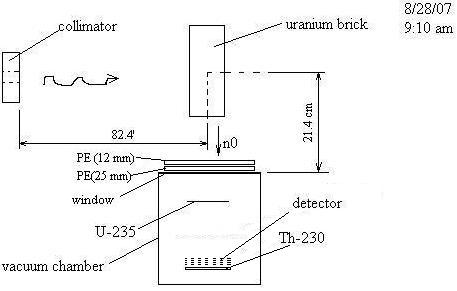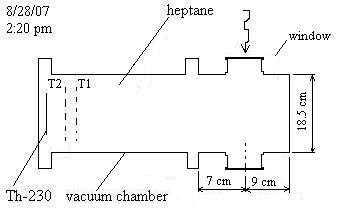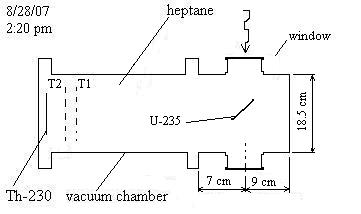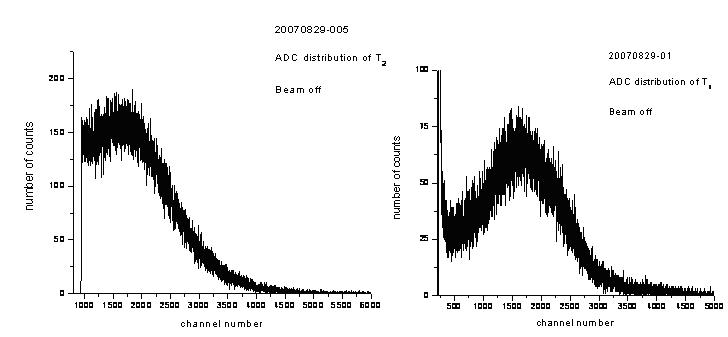Experimental setup
Collimator parameters: in upstream side of wall 1/2", in downstream side of wall 1(1/2)".
Figure 0: sketch of experimental setup.
Figure 1: 8:21 am - pulse, 200 ns, 300 Hz, of beam, 6 fissions. 9:10 am - Threshold 80 mV, .
Figure 2: , , , , . , . Geometrical dimensions for detector placement and chamber size are the same as in Figure 1.
Figure 3: , , , , . , threshold = 80 mV, . Geometrical dimensions for detector placement and chamber size are the same as in Figure 1.
Figure 4: , , , , . , , threshold = 80 mV, . Geometrical dimensions for detector placement and chamber size are the same as in Figure 1.
Figure 4: This new architecture is used for obtaining timing spectra during runs 60 - 63 (http://www.iac.isu.edu/mediawiki/index.php/Timing_spectra), , .
Figure 5: Beam produces nuclear fragments on and Al and fission fragments on . P = 4.96 Torr (heptane), (beam off), (beam on!). Chambers are not stable due to vacuum leak. If nothing was changed this geometry was used to get all the energy spectra (http://www.iac.isu.edu/mediawiki/index.php/Energy_spectra_%28fiss_frag%29).
Figure 6: ADC distributions of (left) and (right). Data obtained via experimental setup shown in Figure 5.
